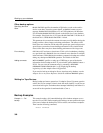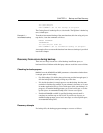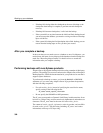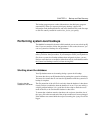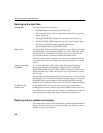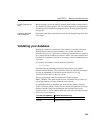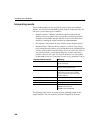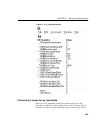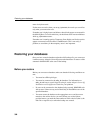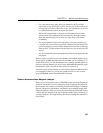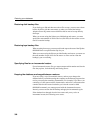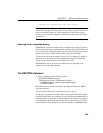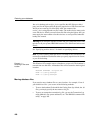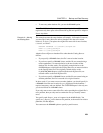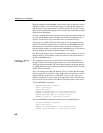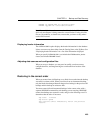
Restoring your databases
396
more slowly than usual.
If other users are active when you run
sp_iqcheckdb, the results you see reflect
only what your transaction sees.
If another user is doing inserts and deletes, those blocks appear as unowned in
the Main IQ Store. To avoid confusion, you should not allow inserts and deletes
while
sp_iqcheckdb executes.
If another user is running queries, Temporary Store blocks used for the queries
appear as unowned, and also affect CountMismatch. This is not really a
problem, as consistency in the temporary store is not important.
Restoring your databases
Once you have created a database and made a full backup of it, you can restore
it when necessary. Adaptive Server IQ restores the database to its state as of the
automatic
CHECKPOINT at the start of the backup.
Before you restore
Before you can restore a database, make sure that the following conditions are
met:
• You must have DBA privileges.
• You must be connected to the
utility_db database. For information on
utility_db and how to set privileges for using it, see the Adaptive Server IQ
Installation and Configuration Guide for your platform.
• No user can be connected to the database being restored.
RESTORE exits
with an error if there are any active Read Only or Read/Write users of the
specified database.
• You must restore the database to the appropriate server, and that server
must have the archive devices you need. When you use the Sybase-
provided restore, you need the same number of archive devices (that is, the
disk files or tape drives) as when the backup was created.



